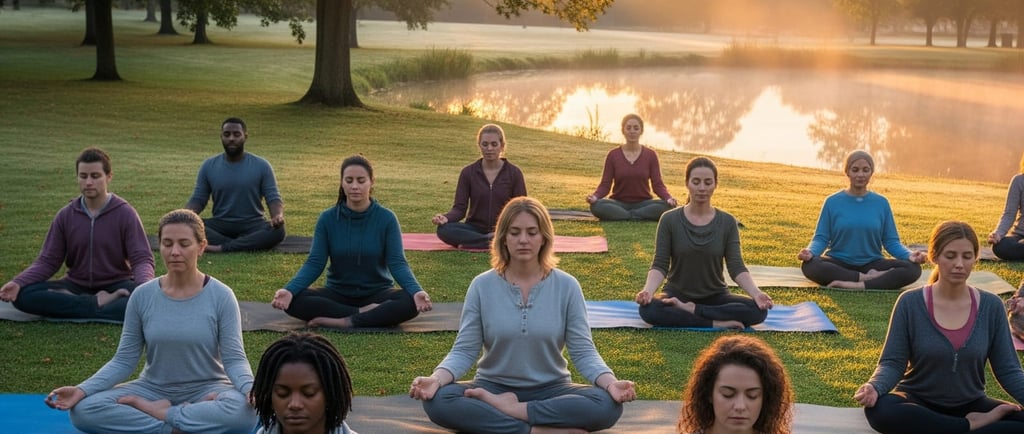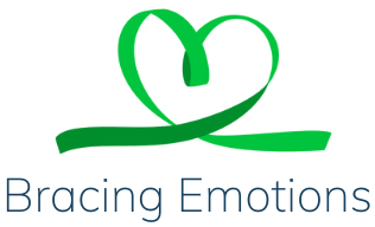
Meditation
Meditation is a centuries-old practice that enhances self-awareness, focus, and emotional balance. Research shows it supports both mental and physical health, promoting calmness, resilience, and overall well-being.
Rakshita N Magodra
9/5/20253 min read


Meditation - Definition, Types, Effects, Culture.
Meditation has been used for centuries as an altered state of consciousness. Meditation can be simply defined as - a learned technique for refocusing attention that brings about an altered state of consciousness (Feldman,2023). The process of meditation includes focusing on breathing, repeating a mantra, syllable or a word over and over again. In meditation, there is heightened awareness about oneself. Meditation improves concentration. It has a history that goes back to thousands of years (NCCHI,2020). Nearly every religion has a practice of performing meditation. It is also important to note that meditation can be used as a psychotherapeutic technique.
There are two primary types of meditation i.e., Concentrative meditation and Mindfulness meditation. Concentrative meditation involves focusing on a specific thing while tuning out everything else around; whereas in mindfulness meditation, an individual is in a state of awareness and is involved in the present moment and making himself open, aware, and accepting. There are many other types of meditation differing from culture to culture and religion to religion.
First, let’s understand how to start meditating. Before getting started, an individual must understand that results of meditation are not instant, and it takes time to show changes within individuals. The next step would be to start from 5 minutes and then gradually increase it to 15 minutes. Also, no matter how intense negative thoughts are one must bring their wandering mind back. This habit develops gradually.
Meditation and Mindfulness - In a 2012 U.S. survey, 1.9 percent of 34,525 adults reported that they had practiced mindfulness meditation in the past 12 months. The purpose of meditation varied among respondents from general awareness , prevention of diseases, relaxation, to improving sleep quality. (NCCHI)
While discussing meditation, how can one leave out its impact and benefits? Research has shown that meditation can have both physiological and psychological effects. Here are a few effects of meditation :
· Lowered state of physical arousal
· Reduced respiration rate
· Decreased heart rate
· Increased self awareness
· Improved emotional well-being
· Improved immunity (Kendra Cherry,2023).
So far, we have understood what meditation is, how it differs from culture to culture, what are the types of meditation. It is also equally important to understand how meditation affects the brain and what actually happens when we practice meditation consistently. The brain, as we know is an important and life sustaining organ of the human body. Magnetic Resonance imaging (MRI) scans have shown that practicing meditation brings many positive changes and improves several brain functions (NIH,2023). Brain Plasticity - brain’s remarkable ability to change and adapt throughout life - also improves by practicing meditation.
Meditation takes us to higher levels of self awareness. Practicing meditation initially seems difficult because many negative thoughts, scenarios try to disturb the focus and concentration. The key to practice meditation regularly without getting bothered by negative thoughts is to allow the negative thoughts to simply flow and observe them. We can easily get distracted if we try to exert control on these thoughts. Meditation is the process of observing thoughts silently.
When mud is mixed in a glass of water , mud takes time to settle at bottom and water remains still while mud gets accumulated at the bottom. In the same way, one must stay still and let their thoughts settle by themselves. By doing this regularly, there comes a certain stage when no thoughts happen to bother and an individual attains complete self awareness and self realization.
It is often advised that at the beginning, only 5 minutes of meditation is sufficient and in the later stages one can easily meditate for up to 30 minutes. Meditation is meant for all there is no age barrier. For those dealing with problems of attention span, Focus meditation is the best remedy.
Meditation also allows us to understand the difference between reacting and responding to any situation. As we practice meditation we start to understand how important it is to remain calm in every situation.
References :
1.Feldman,R.(2021).Understanding psychology.McGraw Hill Education.
2. Ciccarelli,S.,& Noland white,J.(2023).Psychology.Pearson Education.
3. National Centre for complementary and Integrative health .(2022,November).Meditation and Mindfulness: What you need to know. US Department of Health and Human Services,National Institute of Health.
https://www.nccih.nih.gov/health/meditation-and-mindfulness-effectiveness-and-safety
4.. Verywell Mind article
Scott, E. (n.d.). What is meditation? Verywell well. Retrieved July 15, 2025, from https://www.verywellmind.com/what-is-meditation-2795927
5.PMC article – Sharma (2015)
Sharma, H. (2015). Meditation: Process and effects. Ayu, 36(3), 233–237.
https://doi.org/10.4103/0974-8520.182756
6.PMC article – Jamil et al. (2023)
Jamil, A., Gutlapalli, S. D., Ali, M., Oble, M. J. P., Sonia, S. N., George, S., Shahi, S. R., Ali, Z., Abaza, A., & Mohammed, L. (2023, June 19). Meditation and its mental and physical health benefits in 2023. Cureus, 15(6), e40650. https://doi.org/10.7759/cureus.40650 Cureus+3Lhagsam Tibetan Meditation+3mail.qigonginstitute.org+3
7.PMC article – Rose, Zell & Strickhouser (2020)
Rose, S., Zell, E., & Strickhouser, J. E. (2020). The effect of meditation on health: A metasynthesis of randomized controlled trials. Mindfulness, 11, 507–516.
Connect
Join our community for mental health discussions.
Support
© 2024. All rights reserved.

